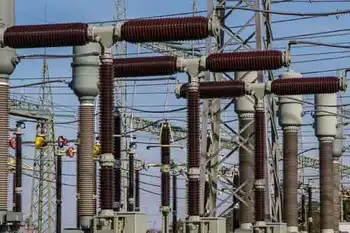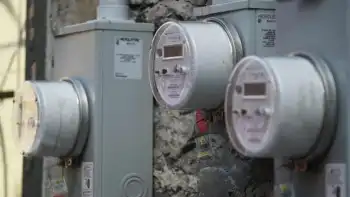Smog From U.S. Plants Will Not Hurt Canada
OTTAWA -- - Environment Minister David Anderson says a rollback of US regulations on coal-fired power plants will not cause increased smog in Canada, but skeptics are worried.
Anderson said he had been told by Christie Whitman, head of the US Environmental Protection Agency, that Canadian air quality won't be damaged by the new, less stringent rules.
"She gave me the assurance that (the rollback) will not reduce protection for Canada," Anderson said in a teleconference from Victoria.
He made the comments following a joint announcement with Whitman that the Canada and the United States have agreed to increase co-operation on air-quality issues.
Anderson said the two countries will invest in a number of pilot projects to improve air quality, but gave no specifics.
It's estimated that about half the smog in southern Canadian cities including Toronto, Montreal and Vancouver comes from the United States.
Coal-fired plants in the US Midwest are a major source of smog in Eastern Canada.
A group of nine New England and mid-Atlantic states have sued the US government over the new regulations, introduced by George W. Bush's administration, claiming the rollback will result in higher levels of pollution.
Quentin Chiotti of Pollution Probe said he welcomes any increased co-operation on transboundary pollution but is not satisfied by Whitman's assurances.
"It's not clear to us whether those coal-fired plants in the U.S., which produce a lot of nasty, toxic pollutants, are not going to continue to produce a lot of problems," he said.
"The fact that the eastern states have launched a lawsuit demonstrates that on the US side of the border there's a lot of concern over Bush's position."
Under previous US regulations, industrial plants that undertook expansion were required to install state-of-the-art pollution-control equipment.
Under the revised rules, plants will be allowed undertake extensive changes without triggering requirements that they install new equipment.
The coal industry had long pressed for the rollback, arguing that previous rules tied them up in paperwork and deterred investment in new power plants needed to provide electricity to consumers.
Whitman has said repeatedly that the rule changes won't result in higher emissions.
Carol Browner, who held Whitman's job when Bill Clinton was US president, has said the rule changes are "nothing but a special deal for the special interests" and come "at the expense of all who breathe, and most particularly our children."
Related News

Melting Glass Experiment Surprises Scientists by Defying a Law of Electricity
LONDON - A team of scientists working with electrical currents and silicate glass have been left gobsmacked after the glass appeared to defy a basic physical law.
If you pass an electrical current through a material, the way that current generates heat can be described by Joule's first law. It's been observed time and time again, with the temperature always evenly distributed when the material is homogeneous (or uniform).
But not in this recent experiment. A section - and only a section - of silicate glass became so hot that it melted, and even evaporated. Moreover, it did so at a much…




